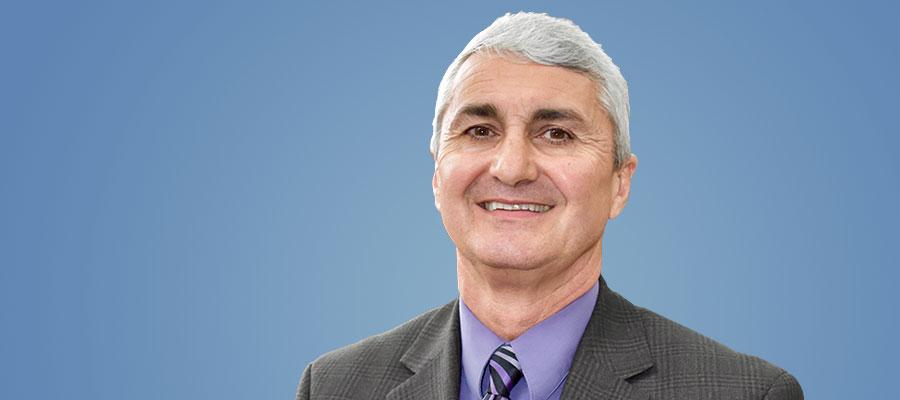Celebrating the achievements, heroes of rural health care

In honor of National Rural Health Day, I wanted to share some thoughts on the unique challenges facing rural hospitals and health systems — mine in particular — and the innovative workarounds we are developing to preserve access to local, high-quality, affordable care for rural residents.
Since March of 2014, I’ve had the honor of serving as CEO for Uvalde Memorial Hospital (UMH) in Texas, a 25-bed critical access hospital that serves nearly 50,000 people in five counties over a vast area of south central Texas.
At UMH our mission is to promote the healing of those we serve by providing compassionate, high-quality healthcare. Our vision is to be the provider of choice to the people we serve with the best staff, the best care, and the healthiest community.
We provide acute care, emergency medicine, swing bed, rehabilitation therapies, imaging, lab, surgical services, wound care, hospice and primary and specialty care to the residents of Uvalde and surrounding communities. We are a level IV trauma facility.
Part of ensuring access to care is knowing your community and staying ahead of the trends in changing practice patterns and new models of payment and delivery.
Tailoring care to your community
On average compared to the rest of Texas, the counties served by UMH have a much larger population over age 65, have higher unemployment, a lower median household income, have a higher percentage of children living in poverty and a higher percent of children in single-parent households.
Like many rural areas, UMH’s service area also struggles with opioid usage. In the last year, we have been fortunate to attract a pain specialist who provides and promotes alternative treatments. We believe with a three-pronged approach to pain control/management — which includes alternatives to opioid prescription such as joint injections, behavioral health pain counseling/education and physical therapy — we can reduce the need for prescribing opioids and change the addiction trend in our communities.
That’s why last year, UMH provided almost $16 million in charity care in a state that did not expand Medicaid. In addition, changing needs and practice patterns dictate a change in our model of delivery. Prior to conversion to a critical access hospital in 2016, UMH was a licensed 66-bed sole community hospital. We currently have 50 beds (25 inpatient and 25 observation) in which to treat our patients.
However, as outpatient services comprise a significant and growing volume of services, UMH is responding by expanding its outpatient capacity, as well as its overall capacity, to serve more patients and in ways that better meet their needs. The new facility will have 25 inpatient beds and 16 observation beds. It will be a two-story facility concentrating most of the outpatient services on the first floor for easy convenience of the patient. It will also incorporate an urgent care service adjacent to the Emergency Department. UMH sought and obtained financing from the USDA to make the project possible. Following an extensive study of renovation versus replacement, hospital leadership was advised that replacement is the most favorable option. The new replacement facility will have multi-faceted positive effects on the patients we serve, including larger rooms to serve our patients and more efficient support space. The two-story facility will improve patient flow by providing busy outpatient services, which are located closer to each other, and offer centralized registration for all services.
The hospital also worked with consultants in 2017 through the Small Rural Hospital Transition project on an assessment that would keep quality care in the community. As a result, the hospital added a cardiac rehabilitation program in January of this year, revamped staffing and square footage space for its hospice program, and using claims data to establish population health improvement strategies.
Celebrating achievements in providing high-quality care
At Uvalde, we are proud to recognize the innovation, high-quality of care and commitment from our health professionals and volunteers as we celebrate this year’s National Rural Health Day. We recognize our staff with a healthy-start breakfast to kick off the day and encourage participation in our upcoming wellness walk/run “Turkey Trot” with the local community college
UMH continues to serve as a major employer in the region and works hard to make the hospital attractive to top tier talent and a good place to work. We are currently collaborating with the local federally qualified health center, Community Health Development, Inc., Val Verde Regional Hospital in Del Rio, and the University Health System, San Antonio, on a project to ensure that new mothers obtain timely and quality care throughout their pregnancy. This project is made possible in part via Health Resources and Services Administration’s Rural Maternity and Obstetrics Management Strategies program.
We understand that employee engagement, patient satisfaction and quality go hand and hand. We have experienced more than 13 years in a row performing in the 90th percentile of patient engagement as measured by Press Ganey (four years at 99th percentile) and have been named to Modern Healthcare’s Best Places to Work in health care list for the past two years. During this same period, we have also seen our patient satisfaction and quality scores increase to impressive levels.
We remain committed to serving our rural community and we salute the rural health care providers nationwide joining us in these efforts. Today, we celebrate the unsung heroes of rural health care and thank you for all you do.
Tom Nordwick, is the CEO of Uvalde (Texas) Memorial Hospital and the chair-elect of the Council for AHA’s Section for Small or Rural Hospitals.

